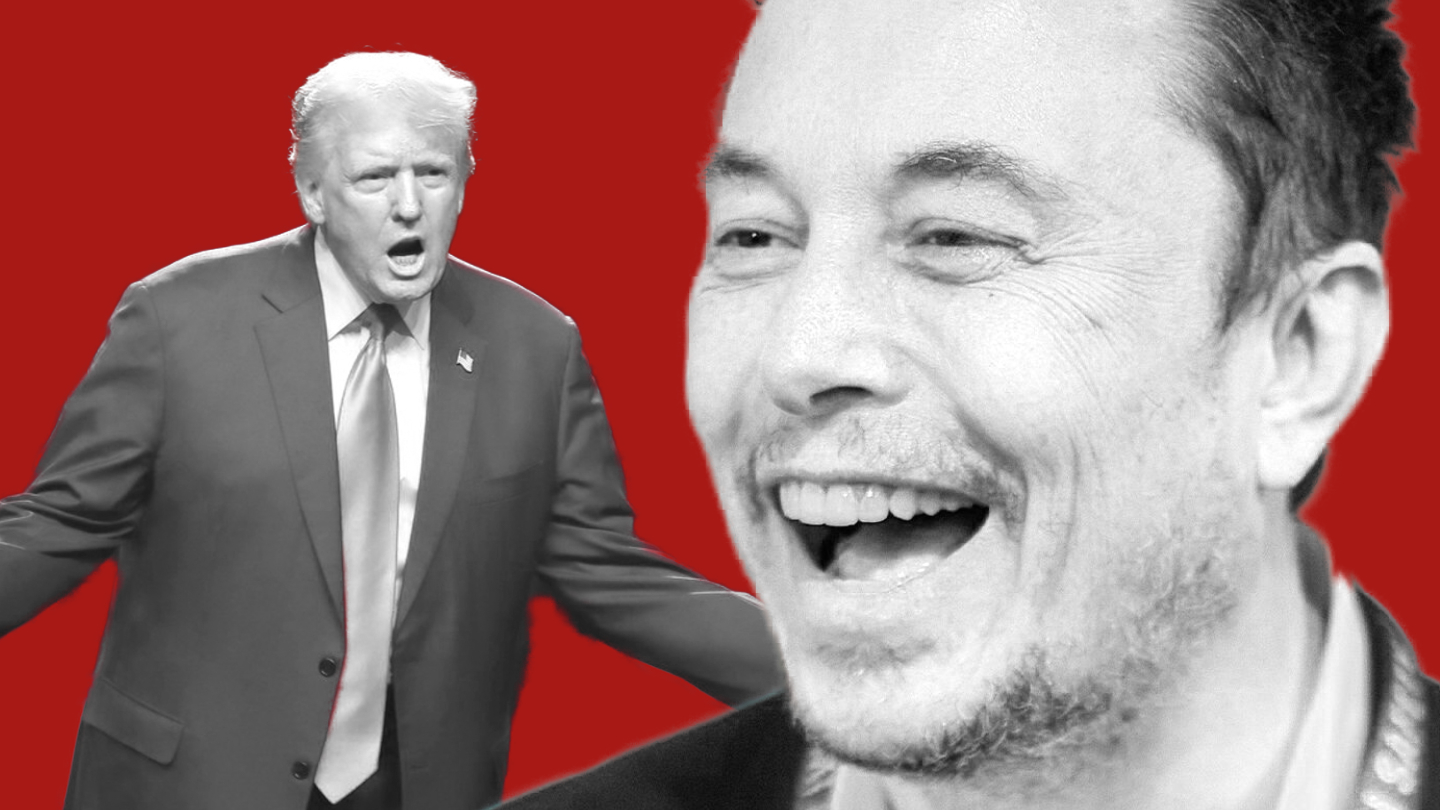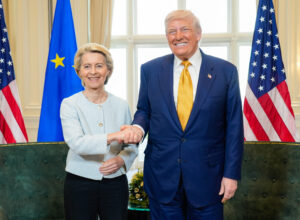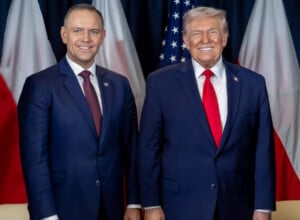Donald Trump wygrał. I to nie trochę, ale z wyraźną przewagą. Trzeba powiedzieć sobie szczerze, to ogromny sukces jego, Partii Republikańskiej i ich sojuszników, z Elonem Muskiem na czele.
Jednocześnie to zła informacja dla USA, w dłuższej zaś perspektywie – dla świata. I to nie ze względów, które najczęściej się podnosi.
Zbyt często krytyczne analizy Trumpa zamieniają się w pseudopsychologię – że narcyz, że megaloman, że mitoman.
Takie analizy są płytkie i nie uchwytują głębszych przemian politycznych, które Trump wprawdzie uosabia najlepiej, ale które wykraczają daleko poza niego.
Ostatnia kampania wyborcza jest tego najlepszym przykładem – Trump i Musk zastosowali strategię, którą zapewne będzie kopiowała prawica (a może i nie tylko prawica) na całym świecie.
Porozmawiajmy o… urzędzie podatkowym
Uwaga opinii publicznej kierowała się w ostatnich latach na takie kwestie w amerykańskiej polityce, jak demokracja, klimat, prawo aborcyjne, Ukraina czy Gaza. Przez pryzmat tych tematów zazwyczaj oceniano też, kto jest lepszym (albo mniej gorszym) kandydatem: Harris czy może Trump. To zrozumiałe, bo wszystko to są kwestie bardzo ważne.
Ale dla mnie znacząca jest także pewna drobnostka, która niemal całkowicie umknęła w Polsce, a dobrze uchwytuje różnice między współczesną Partią Demokratyczną a Partią Republikańską. Przy okazji pokazuje też wyzwania stojące przed współczesnym ruchem progresywnym.
Chodzi mi o kwestię finansowania Internal Revenue Service (IRS), czyli agencji federalnej, która zajmuje się ściąganiem podatków.
W 2019 roku urzędnicy IRS powiedzieli wprost: nie mamy pieniędzy ani personelu, żeby weryfikować zeznania podatkowe najbogatszych. Zamożni podatnicy często używają różnych sztuczek, aby zmniejszyć swoje podatki, więc wyłapanie ewentualnych nadużyć wymaga dodatkowych nakładów pracy.
Administracja Bidena postanowiła temu zaradzić. W 2022 roku przyznała IRS dodatkowe 80 miliardów dolarów. I wiecie co? Dało to niezły efekt. Nie tylko poprawiło ściągalność podatków od najbogatszych płatników, ale znacząco polepszyło jakość obsługi dla zwykłych klientów.
Republikanów to nie przekonało – robią, co mogą, aby z powrotem obciąć finansowanie IRS.
Ta niby marginalna historia zawiera trzy morały.
Po pierwsze, zbyt często dajemy sobie wmówić, że pewne zjawiska są naturalne i „nic panie nie zrobisz”. Na przykład, że bogaci zawsze będą się wykręcali od podatków. Cóż, to na ile im się to udaje, zależy od tego, jak kształtujemy nasze instytucje publiczne. To nie kwestia natury, tylko polityki.
Po drugie, obie amerykańskie partie mają zbyt ścisłe związki z elitami finansowymi, ale republikanie są pod tym względem gorsi. Nawet jak już uda się coś zrobić z horrendalnie nierównym systemem amerykańskim, to od razu chcą to cofnąć.
Po trzecie – i to jest szczególnie ważne w kontekście wyboru Trumpa – rację ma Ezra Klein, amerykański dziennikarz, który napisał niedawno, że główną linią sporu między demokratami a republikanami stał się stosunek do instytucji państwowych. Ci drudzy im całkowicie nie ufają, najlepiej wszystkie by zlikwidowali w cholerę. No, może oprócz wojska, policji itp.
Nie chodzi tu tylko o libertariańskie fantazje o „tanim państwie” (choć, owszem, te fantazje są wśród republikanów silne), ale o coś więcej. O przekonanie, że te instytucje są rodzajem wroga wewnętrznego, że zostały bezpowrotnie opanowane przez wraże lewactwo i ich celem jest otumanianie prawdziwych patriotów.
Taka postawa ma konsekwencje wykraczające poza Stany Zjednoczone – jest bowiem symptomem globalnego zjawiska, które z braku lepszej nazwy można określić mianem „prawicy spiskowej”.
Nowa potęga – prawica spiskowa
Prawica spiskowa charakteryzuje się tym, że podważa zaufanie do instytucjonalnych podwalin współczesnych państw demokratycznych: systemu ochrony zdrowia (bo „wciska szczepionki”), uniwersytetów (bo opanowane przez lewactwo), naukowych gron eksperckich (bo kłamią w sprawie klimatu), mediów (bo kłamią we wszystkim), wszelkiego rodzaju urzędów (bo biurokraci nami rządzą) – nic i nikt nie jest poza podejrzeniem.
Nikt nie obrazuje tego procesu lepiej niż para Trump-Musk. Cała ich kampania była oparta na ciągłym podważaniu zaufania do kolejnych instytucji. Nie można ufać komisjom wyborczym, nie można ufać urzędowi podatkowemu, nie można ufać służbom cywilnym, nie można ufać mediom, nie można ufać naukowcom, nie można ufać nawet statystykom FBI na temat przestępczości.
A jeśli myślicie sobie „cóż, ale wiele z tych instytucji, na przykład media, ma wiele za uszami, prawda?”, to macie oczywiście rację. Nie można jednak pomijać tego, w jakim celu Musk i Trump je atakują.
Chcą osłabić urząd podatkowy nie po to, by chronić „zwykłego człowieka” przed biurokratami, ale dlatego, że połapali się, iż po dofinansowaniu ma on niemiły nawyk lepszego ściągania należności od bogatych.
Chcą osłabić państwowe instytucje zdrowotne nie dlatego, że idą na wojnę z Big Pharmą, ale dlatego, że takie osłabianie to pierwszy krok do dalszej prywatyzacji usług publicznych i podporządkowania ich bogatym inwestorom.
Chcą osłabić tradycyjne media nie dlatego, że nie podoba im się ich oligarchizacja, ale dlatego, że jednak nie jest ona pełna – że niektórzy dziennikarze nadal mają denerwujący odruch krytycznego przyglądania się władzy. Czy nie lepiej byłoby zastąpić to platformami typu X – ze wszechwładzą dobrego cara Muska?
Chcą osłabić wpływy klimatologów nie dlatego, że zależy im na „pluralizmie debaty publicznej”, ale dlatego, ze ci cholerni naukowcy wygadują rzeczy, które nie kalkulują się z ich interesem politycznym i finansowym.
Jednym z pomysłów Trumpa jest stworzenie komisji ds. efektywności państwa – z Muskiem na czele. Nie wyjaśnili, o co dokładnie chodzi, ale Musk wielokrotnie sugerował, że o obcinanie wydatków socjalnych, znoszenie regulacji rynkowych i zwalnianie urzędników państwowych. Przypominam, że Musk jest fanem prezydenta Argentyny Javiera Mileia, który funduje swojemu państwo terapię szokową na sterydach.
Czasem, kiedy dwoje miliarderów o autorytarnych zapędach mówi ci, że chcą rozmontować państwo, aby mieć więcej władzy, to… warto uwierzyć im na słowo. Naprawdę chodzi o rozmontowanie państwa w imię interesów grupki bogaczy.
Niestety, Amerykanie chcą sprawdzić to w praktyce.

 Wspieraj
Wspieraj 

 Wspieraj
Wspieraj  Wydawnictwo
Wydawnictwo 
 Zaloguj się
Zaloguj się 
















